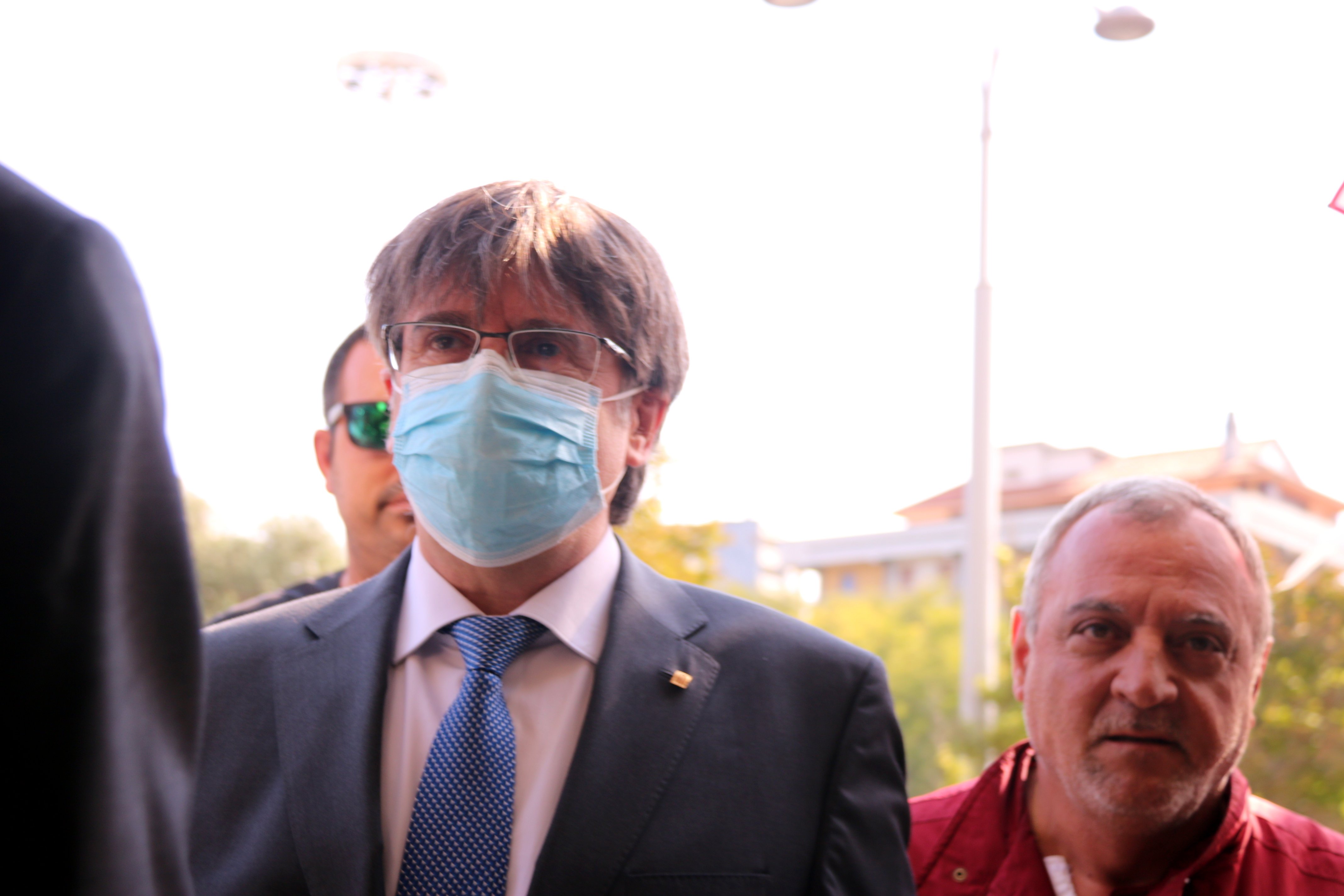The European Parliament opposes the temporary granting of immunity to Catalan president Puigdemont despite the fact of his brief arrest in Sardinia. Parliamentary sources have confirmed to the ACN agency that the legal services of the chamber will once again take a stand against the interim measures requested by the Catalan MEP in the General Court of the European Union (EGC). The European Parliament has until October 15th to present its arguments in the second request for interim measures made by the leader of the pro-independence Junts party.
The sources say that the chamber's lawyers will continue to defend "the decision taken by the full European Parliament" in March, that is, when MEPs voted to lift the parliamentary immunity of Puigdemont and fellow Catalan MEPs Toni Comín and Clara Ponsatí.
Suspended hearing
After his arrest and subsequent release in Sardinia, Puigdemont asked the EGC to return his immunity as a precautionary measure to avoid being arrested again. This is the second time he has claimed protection from the Luxembourg court, which in July considered it unnecessary for Puigdemont to retain his interim immunity while several issues relating to the European Arrest Warrants issued by the Spanish Supreme Court are resolved.
Judicial proceedings for the extradition of the Catalan president, both those previously opened in Belgium and now the hearing in Italy, are "suspended" pending the ruling from the European institutions in Luxembourg on the immunity case and the Supreme Court's preliminary questions.
Immunity
In October 2019, the Supreme Court issued the third European Arrest Warrant (EAW) against Puigdemont for the Catalan referendum case and, once again, Belgium began the extradition procedure. Shortly afterwards, however, the Junts leader was recognized as an MEP and acquired immunity from prosecution on that basis. That is why the Belgian judiciary suspended the process for the EAW against the Catalan president.
At the request of Spain's Supreme Court, which sought to reactivate the extradition, the European Parliament voted to lift Puigdemont's immunity in March 2021. A decision that his defence challenged in the EGC, the European court of first instance in Luxembourg, denouncing that the Supreme Court's request was "irregular."
In parallel, the Spanish investigating judge Pablo Llarena asked the senior European court, the Court of Justice (ECJ) on the criteria that Belgium, or other member states, should use when considering the EAW. Meanwhile, the warrant remains in force and appears in the European police alert system, but there are differences between the Supreme Court and the Spanish state's solicitors over whether the judicial procedure is active or not.
Maintain protection as an MEP
Apart from denouncing the European Parliament before the EGC over the lifting of immunity, Puigdemont demanded, as an interim precaution, the retention of his parliamentary protection. Although this was initially granted as an urgent measure, on 30th July the EGC decided that it was not necessary to retain it because judicial proceedings had been "suspended" pending the ECJ's ruling on Llarena's questions. "There is nothing to suggest that the judicial authorities in Belgium or the authorities of any other member state can execute the European Arrest Warrants," the General Court vice-president ruled.
However, at that time, the court also opened the door to return Puigdemont's immunity as a precaution in case of arrest: "If after this order is issued (...) alleged damages could occur, in particular in the case of arrest of the appellants by an enforcement authority of a Member State or the implementation of a procedure for their handover to the Spanish authorities, they may submit a new application for interim measures."
In the main image, Catalan president Puigdemont arrives at the Sassari court in Sardinia. / ACN

